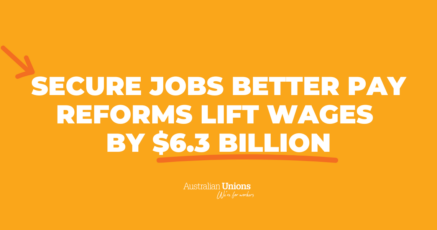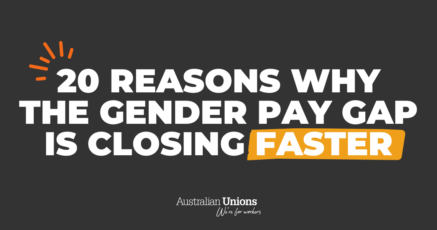On Saturday 14 October, Australia will have the opportunity to vote in a once-in-a-generation referendum.
The question is a simple one and proposes a modest change to our Constitution – to recognise Aboriginal and Torres Strait Islander people in the practical form of a Voice to Parliament.
What is the referendum all about?
This referendum is about something very simple – listening.
We all know Australia is one of the best countries in the world – but we also know not everyone is getting the same opportunities.
The current system isn’t working. Why? Because instead of listening, Australia has been making assumptions about what Aboriginal and Torres Strait Islander people need – doing things to Indigenous people, not with them.
This means too many Aboriginal and Torres Strait Islander people are being left behind and don’t have the same chances as everyone else – with lower life expectancy, higher rates of disease and infant mortality, and fewer opportunities for education and training.
That’s why Aboriginal and Torres Strait Islander Australians are asking for a Voice that will give advice on key issues that affect their communities.
What would the Voice look like and how would it work?
The Voice will be an advisory committee of Aboriginal and Torres Strait Islander people from across Australia and the Torres Strait that gives advice to Parliament and Government on issues that affect their community.
- Members of the Voice will be chosen by Aboriginal and Torres Strait Islander people in their local area and serve for a fixed term.
- It will include Indigenous Australians from every state and territory, the Torres Strait Islands and representatives from the regions and remote communities.
- It will include young people and a balance of men and women.
When Parliament or Government want to improve outcomes for Indigenous Australians, they will ask the Voice to come up with solutions that would make a real practical difference in their communities.
The Voice will not give Aboriginal and Torres Strait Islander people special rights. It will operate like other reference groups that Government listens to, which is a normal function of Government. Parliament and Government will still be responsible for all laws, programs and funding.
Why do we need the Voice?
We know the current system isn’t working because, instead of listening, Australia has been making assumptions about what Aboriginal and Torres Strait Islander people need – doing things to Indigenous people, not with them.
As a result, Indigenous people have:
- A life expectancy 8 years shorter than non-Indigenous Australians
- Worse rates of disease and infant mortality
- A suicide rate twice as high
- Fewer opportunities for education and training.
That’s why Aboriginal and Torres Strait Islander Australians are asking for a Voice that will give advice on key issues that affect their communities.
Empowering Indigenous Australians with a Voice will help build a stronger, fairer nation by giving them a say on how to fix their unique challenge.
When governments listen to people about issues that affect them, they make better decisions, get better results and deliver better value for money.
Why a constitutional Voice?
Because a constitutional voice will last.
There have been a number of government-led Aboriginal and Torres Strait Islander representative bodies over the years. The thing they all have in common is that they were all eventually altered, disempowered, or scrapped entirely, following changes of government.
Embedding a Voice in the Constitution will guarantee an ongoing Voice for First Nations people, reflecting the resilience of over 65,000 years of continuous Aboriginal and Torres Strait Islander cultures and traditions. The only way to change the Constitution is through a referendum.
Where did the idea come from?
In 2017, after many years of work and countless conversations in every part of the country, nearly 250 Aboriginal and Torres Strait Islander leaders and elders endorsed the Uluru Statement from the Heart. This statement calls for recognition in the Constitution through a Voice and asks all Australians to help make practical change in their lives and create better opportunities for their children.
Over 80% of Aboriginal and Torres Strait Islander people support practical recognition through the Voice.
The call for a Voice did not come from politicians.
What will the referendum question be?
When you vote, you will be asked only the following question:
“A Proposed Law: to alter the Constitution to recognise the First Peoples of Australia by establishing an Aboriginal and Torres Strait Islander Voice. Do you approve this proposed alteration?”
You vote by writing either YES or no in the box.
What are the consequences of a No vote on 14 October?
Rather than listening to Indigenous Australians, it will mean ignoring what over 80% of Indigenous Australians say they need to fix their unique challenges.
Rather than empowering Indigenous Australians, it will mean more of the same old policy failures are passed on to the next generation of Indigenous children.
Rather than a stronger, fairer nation, it will mean a continuing divide between Indigenous and non-Indigenous Australians.
It’s time to listen. It’s time for recognition. It’s time to get better results. It’s time to say YES.







SHARE:
It’s time to listen by saying “Yes”